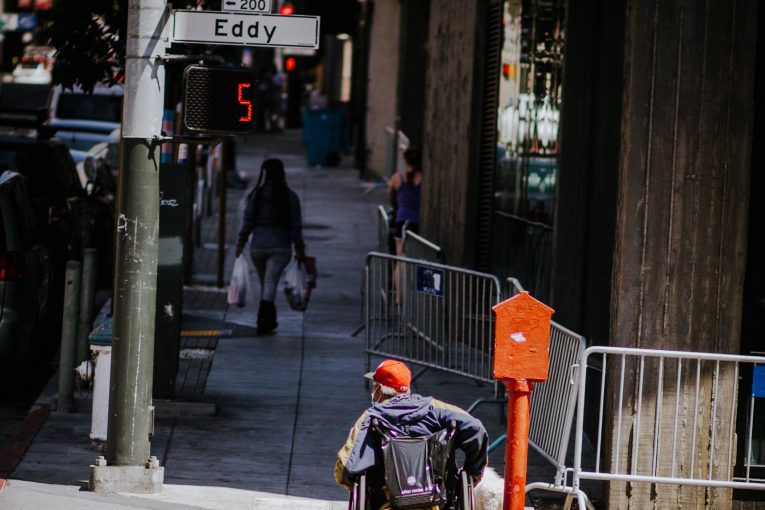

By David M. Greenwald
Executive Editor
Lost in the news crush of the militarized police response to campus protests, is the continued escalation by the governor in the war on drugs.
In a release this week, Governor Newsom announced “multiagency operations lead to the seizure of nearly 700 pounds of fentanyl since the state’s joint public safety partnership with San Francisco leaders began one year ago in May 2023.”
The CHP is claiming credit for issuing 6,200+ citations for illegal activity, making 500+ arrests, and recovering 115+ stolen vehicles.
“Over the last year, we have made significant, measurable progress for safety in San  Francisco. While there is more to do to improve public safety, crime rates are significantly down as we work with our local partners to continue to reverse the tide,” Governor Newsom said.
Francisco. While there is more to do to improve public safety, crime rates are significantly down as we work with our local partners to continue to reverse the tide,” Governor Newsom said.
“Our coordinated work to shut down drug markets in San Francisco is making a difference, but we have more work to do,” said San Francisco Mayor London Breed. “I’m grateful for the dedicated and sustained support of Governor Newsom to deliver the California Highway Patrol and the California National Guard to work with our local and federal law enforcement officers. Together we are sending a message at all levels of government that anyone selling fentanyl in this city will be arrested and prosecuted.”
This sounds in impressive—but is the effort actually making anyone safer?
According to the release from the governor’s office, “Violent crime and property crime are significantly down year-over-year in San Francisco.”
That’s good, but is it related to these efforts? As the Vanguard has reported, crime is now down across the board.
The data we have is nearly two months old, but it is far from clear that these efforts are going to make much of a difference in terms of overdose deaths in San Francisco.
According to the San Francisco Chronicle, there were a record 810 “[d]eaths from accidental drug overdoses in San Francisco” in 2023. Through March 13, there were 199 already in 2024, on path for about 796—very very slightly lower, but until last year’s total, that would have been the record.
It seemed only a few years ago, most experts agreed that the war on drugs was a failure.
In 2021, NPR, for example, conducted numerous interviews for a 50-year War on Drugs retrospective: “During months of interviews for this project, NPR found a growing consensus across the political spectrum — including among some in law enforcement — that the drug war simply didn’t work.”
“Over the last 50 years, we’ve unfortunately seen the ‘War on Drugs’ be used as an excuse to declare war on people of color, on poor Americans and so many other marginalized groups,” said New York Attorney General Letitia James in a statement sent to NPR.
NPR added that “in much of the country, disillusionment with the drug war has already led to repeal of some of the most punitive policies, including mandatory lengthy prison sentences for nonviolent drug users.”
But the fentanyl crisis has hit and what are we doing in parts of California? Trying to revive at least portions of the war on drugs.
Across California, for instance, people are being charged with murder for fentanyl-related deaths.
In March the NY Times reported, “Since late 2021, the Riverside County district attorney, Mike Hestrin, has charged 34 suspected fentanyl suppliers with murder and is said to be the first prosecutor in California to achieve a guilty verdict from a jury in a fentanyl-related homicide trial.”
“People are being devastated by this drug,” said DA Hestrin.
The Times goes on to note that “even in the liberal bastion of San Francisco, the district attorney’s office has been preparing to investigate fentanyl deaths as possible homicides, which would be a big shift in the city’s approach to drug-related crimes.”
“Using the same strategy we used in the 1990s and suggesting that it is appropriate and effective in 2024 is not a thinking person’s argument,” said Cristine Soto DeBerry, founder of Prosecutors Alliance.
The Times added, “Prosecution of street dealers is faulted by some critics as a misguided return to the aggressive approaches of the 1990s, which failed to curb drug use and swelled state prison populations with low-level distributors and people who were addicted to drugs.”
A report from Drug Policy Alliance argued that drug-induced homicide prosecutions will not deter drug selling nor will it reduce overdose death rates.
“Empirical evidence finds little support for the idea that sentence severity has a deterrent effect,” the DPA report found.
One evaluation of the data concluded that “existing evidence does not support any significant public safety benefit of the practice of increasing the severity of sentences by imposing longer prison terms” and that “research findings imply that increasingly lengthy prison terms are counterproductive.”
Like many, they note, “Only the certainty of punishment – meaning the degree to which a person feels convinced that they will absolutely be punished for their specific crime – seems to have any impact at all on crime rates.”
And even then, “when deterrent effects are found, they are small.”
The report adds, “Indeed, a large body of evidence demonstrates that neither increased arrests nor increased severity of criminal punishment for drug-related offenses have resulted in less use (demand) or fewer sales (supply).”
They conclude, “Drug-induced homicide laws, then, might fulfill an instinct for retribution and offer a purported solution to the increasing rates of overdose, but they do nothing to reduce demand or deter selling. Accordingly, future deadly drug overdoses will not be prevented.”
And yet, we continue to see when drug overdoses and uses move up, law enforcement resorts to the same failed policies.
Meanwhile, organizations like Drug Policy Alliance point out that drug offenses remain “a leading cause of arrest in the US, “These arrests more often impact Black, Latinx, and Indigenous people and those with low-income. Two-thirds of Americans support eliminating criminal penalties for drug possession and replacing them with a new approach centered in public health,” they report, citing stats from the ACLU.
Meanwhile, they cite FBI stats to note, “Black people are 24% of those arrested, but only make up 13% of the U.S. population—and people of all races use and sell drugs at similar rates. This arrest rate is instead due to targeted policing, surveillance, and punishment tactics.”
The fact is the governor can show arrest stats, it can show the fact that crime is now going down, but what it cannot show is a direct connection between its drug policies and those crime stats, nor can it even show that its policies are making a difference in terms of drug use.
And the main problem is that, by targeting the dealers, they arrest one dealer, another dealer will step up. The problem is that you are not dealing with the demand issue—as long as there remains a demand, someone will attempt to profit by meeting that demand.






